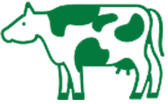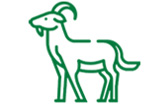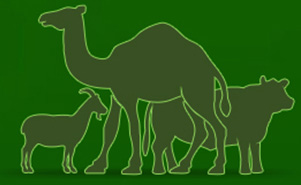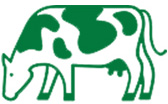Select Your Qurbani Donation Now
Cow

Quantity
Goat/Sheep

Quantity
Why You Should Book Your Qurbani Online With Transparent Hands
- We distribute all Qurbani meat among the needy and poor.
- Our Qurbani prices are lower than most of the other platforms
- Muslims in the US and UK can sacrifice multiple animals in Pakistan for the price of one in their country.
- All animals are sacrificed in accordance with the Shariah.
- Besides allowing you to sacrifice multiple types of animals, we also provide the option to book a share in a cow or camel.
- We provide you with multiple options to give online Qurbani Fi Sabilillah (for the sake of Allah (SWT)).
“The son of Adam does not do any deed on the Day of Sacrifice that is dearer to Allah than shedding blood. It will come on the Day of Resurrection with its horns and cloven hoofs and hair. Its blood is accepted by Allah before it reaches the ground. So be content when you do it.”

(Sunan Ibn Majah 3126)
The Impact of Your
Qurbani Donation in 2025
With your online Qurbani donations, Transparent Hands was able to feed numerous needy individuals and families in Pakistan. You made Eid al-Adha truly memorable for them. From selecting healthy animals according to Islamic rules to packing meat hygienically, Transparent Hands’ team ensured that every aspect of Qurbani was performed with care. Your Qurbani donations became a lifeline of hope and nutrition for thousands, touching the lives of orphans, transgender individuals, seniors, madrasa students, people with disabilities, and deserving families in various slums. You filled countless hearts with joy. Make this Eid even more special for the most deserving communities.
FAQs
Islam provides complete guidelines on how to conduct Qurbani, when and where to conduct it,and how to distribute the Qurbani meat. These rules must be followed to ensure Qurbani is conducted according to Islam’s teachings.
Yes, you can distribute all Qurbani meat among deserving people. However, the general practice is to make three portions of the Qurbani meat. Reserve one for yourself, while distributing the other two halves among relatives and needy individuals. However, there is no Hadith or Quranic verse that makes it a requirement. Therefore, you can donate all three portions as a Qurbani donation if you’d like.
The following Hadith explains the spiritual rewards associated with Qurbani:
The Prophet (ﷺ) said: “The son of Adam does not do any deed on the Day of Sacrifice that is dearer to Allah than shedding blood. It will come on the Day of Resurrection with its horns and cloven hoofs and hair. Its blood is accepted by Allah before it reaches the ground. So be content when you do it.” (Sunan Ibn Majah, 3126)
There is a difference of opinion among scholars about Qurbani. According to the Hanafi school of thought, it is mandatory. However, it is a Sunnah of the Prophet (ﷺ) and thus it is highly recommended.
It depends on the number of people in the family who have wealth greater than or equal to the Nisab value. If there are multiple people in a family who have wealth greater than the Nisab value, they should all participate in Qurbani.
Yes, you can give Qurbani amount to a reputable organization like Transparent Hands that conducts Qurbani and distributes meat according to the Islamic guidelines.
Udhiyah is the Arabic term used for Qurbani. Both words refer to the same practice.
Yes, the larger animals can have seven Qurbani shares, while the smaller animals represent just one Qurbani share. Moreover, smaller animals (Goat, Sheep, Rams, etc.) should be at least a year old. Cows and Buffalos should be at least two years old, while Camels should be at least 5 years old at the time of sacrifice.
Giving Qurbani on the first day of Eid al-Adha is a Sunnah of the Prophet (ﷺ) and thus it is a venerable practice. However, it is permissible to conduct Qurbani on the second and third day of the Eid.
Yes, you can donate your Qurbani amount to an organization like Transparent Hands that conducts Qurbani and distributes the Qurbani meat in compliance with Sharia. You can check out our online Qurbani 2025 page here: https://www.transparenthands.org/online-qurbani-donation/
Yes, Transparent Hands ensures complete compliance with Sharia and conducts Qurbani to benefit the most vulnerable and deserving segment of society.
Qurbani means sacrifice. Udhiyah is the Arabic word for Qurbani, and both words refer to the same practice.
It is recommended that the Qurbani meat be divided into three portions. One portion should be kept for personal consumption, while the other two portions should be distributed among relatives and deserving people. This, however, is not a rule derived from the Quran or Hadith.
No, Qurbani is only incumbent on adults who possess wealth equal to or greater than the Nisab value.

-
Transparent Hands is tax exempted under IRS 501(c)(3)
View 501(c)(3) tax exempt certificate & Our EIN Number: 47-3564801










